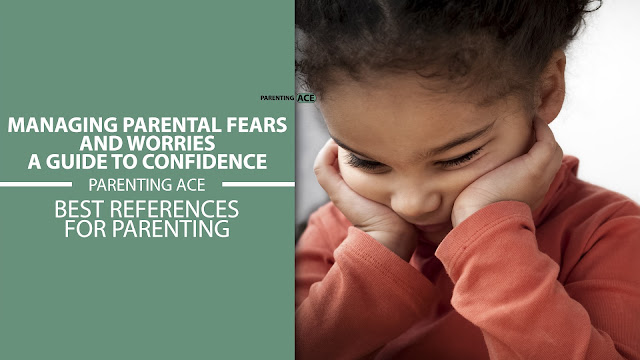Managing Parental Fears and Worries About Children's Future: A Guide to Navigating Anxiety with Confidence
Parenting is an exhilarating journey filled with love, laughter, and countless proud moments. Yet, amidst the joys, lurk the shadows of parental anxiety – the nagging worries about our children's futures. In this blog post, we embark on a journey to understand and navigate the intricate landscape of parental fears and worries. From the pressures of academic success to the uncertainties of career paths, we delve into strategies to help parents manage their anxieties with confidence, empowering them to guide their children toward a bright and fulfilling future.
 |
| Managing Parental Fears and Worries: A Guide to Confidence |
How Can Parents Manage Their Fears And Worries About Their Children's Future?
As parents, we all harbor concerns about our children's future. From their academic success to their social relationships and career prospects, it's natural to worry about the paths our children will take. However, excessive fear and worry can be detrimental, both to our own well-being and to our children's development. In this article, we will explore strategies to help parents manage their fears and anxieties about their children's future, fostering a sense of confidence and empowerment in guiding them toward success.
Understanding Parental Anxiety
Parental anxiety about children's future stems from a deep-rooted desire to protect and provide the best opportunities for our offspring. However, when this anxiety becomes overwhelming, it can lead to irrational fears and intrusive thoughts that hinder effective parenting. Common worries may include concerns about academic performance, social integration, career success, and overall well-being.
Recognizing the Impact of Parental Anxiety
It's important for parents to recognize that their anxiety can inadvertently influence their children's behavior and self-esteem. Children are highly perceptive and can pick up on their parents' worries, leading to feelings of pressure, inadequacy, or even rebellion. Moreover, overly anxious parents may engage in helicopter parenting or overprotection, depriving their children of valuable opportunities for growth and independence.
Strategies for Managing Parental Anxiety
- Practice Mindfulness: Cultivate present-moment awareness through mindfulness practices such as meditation, deep breathing, or yoga. Mindfulness helps parents stay grounded and focused on the present instead of ruminating about the future.
- Challenge Negative Thoughts: Learn to identify and challenge irrational or catastrophic thoughts about your children's future. Replace negative self-talk with more realistic and balanced perspectives.
- Focus on What You Can Control: Recognize that not everything is within your control, and that's okay. Instead of fixating on hypothetical worst-case scenarios, focus on taking practical steps to support your children's development and well-being in the present.
- Seek Support: Don't hesitate to reach out to friends, family members, or mental health professionals for support and guidance. Talking about your worries with others can provide validation and perspective, helping to alleviate feelings of isolation and overwhelm.
- Encourage Resilience in Your Children: Foster resilience and adaptability in your children by teaching them problem-solving skills, coping strategies, and the importance of embracing challenges as learning opportunities. Empower them to navigate setbacks and failures with confidence and perseverance.
Managing fears and worries about our children's future is an ongoing process that requires self-awareness, resilience, and a willingness to seek support when needed. By practicing mindfulness, challenging negative thoughts, focusing on what we can control, and fostering resilience in our children, we can navigate parental anxiety with confidence and empower our children to thrive in an uncertain world. Remember, being a supportive and nurturing parent doesn't mean shielding our children from all adversity, but rather equipping them with the tools and mindset to face life's challenges with courage and resilience.




